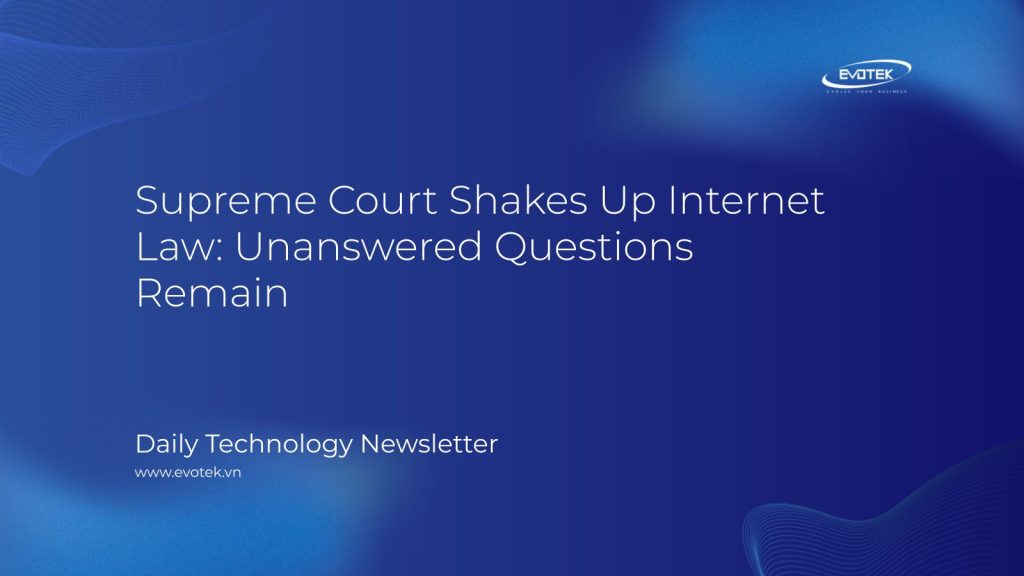The digital landscape is shifting after a recent Supreme Court ruling on internet law, leaving many industry experts and users with pressing questions.
Adi Robertson, a senior tech and policy editor, delves into the implications of the ruling, which centers around age verification for online content.
A Dramatic Shift in Online Speech Regulation
For two decades, age verification as a means to restrict access to adult content faced First Amendment challenges. Now, the Supreme Court’s decision in Free Speech Coalition v. Paxton marks a significant reversal.
Justice Clarence Thomas argues that states have a legitimate interest in protecting children from pornography, and age verification is a valid enforcement tool. Furthermore, the ruling suggests that the impact on adult access to protected speech is “incidental,” akin to showing ID at a liquor store.
However, this ruling raises several concerns that need to be addressed.
Privacy Concerns Escalate
Age verification systems inherently collect sensitive user data, creating potential privacy risks. Previously, the legal challenges surrounding age verification incentivized companies to prioritize privacy. Now, with the legal landscape changed, those incentives are diminishing.
Robertson questions whether companies will be tempted to exploit user data and cut corners on security, especially with weakened privacy regulations. The potential for law enforcement agencies to demand backdoors further exacerbates these privacy risks.
Will Pornhub Return to Texas?
Pornhub previously blocked access in several states, including Texas, to protest age verification laws. With the Supreme Court upholding these laws, Pornhub’s parent company, Aylo, faces a critical decision: continue the fight or comply with the regulations.
A similar situation in the UK, where Pornhub agreed to implement “robust” age verification, suggests a possible shift in the company’s strategy.
Defining “Porn”: A Contentious Issue
The definition of “pornography” will significantly impact the internet. While the legal definitions exist, the interpretation and enforcement by state attorneys general remain uncertain.
Robertson raises concerns about potential targeting of LGBTQ resources or sex education sites, despite their social value. The ruling grants governments broad powers to target websites, potentially leading to censorship and limiting online expression.
Chilling Effects and Future Implications
Legislation restricting adult content often has chilling effects, even when rarely enforced. Websites may proactively make drastic decisions about content, operation locations, and data collection, driven by fear of future legal actions.
The Supreme Court’s decision has shifted the balance of power in the ongoing debate over government censorship, leaving the future of online freedom uncertain.
The ruling’s long-term effects on online privacy, content accessibility, and free expression remain to be seen, sparking crucial discussions about the future of the internet.

 日本語
日本語 한국어
한국어 Tiếng Việt
Tiếng Việt 简体中文
简体中文